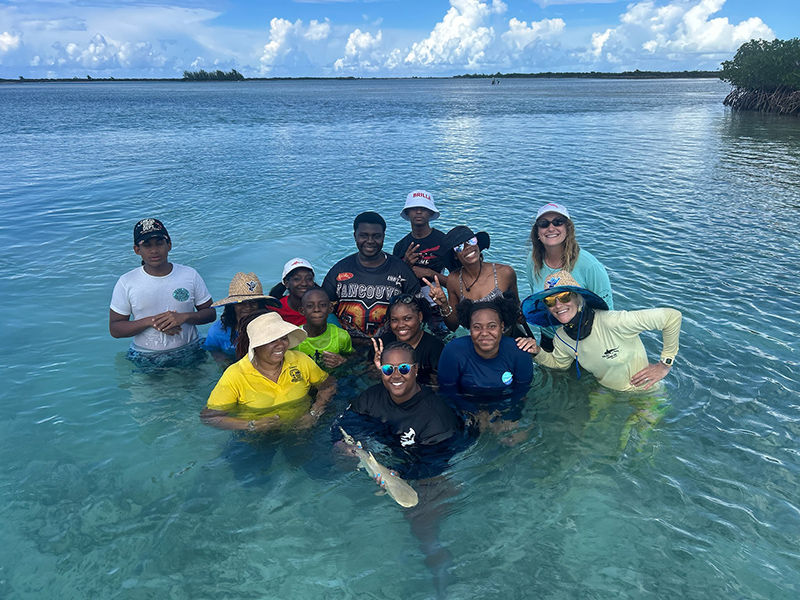Meet Marine Biologist Alison Towner
- Sharks4Kids

- Apr 13, 2020
- 4 min read
Updated: Apr 15, 2020
Author: Angela Warrior
Alison Towner is currently a PhD Candidate at Rhodes University and Marine biologist at the Dyer Island Conservation Trust. Inspired from a young age by her late fathers ambition to dive with White Sharks, Alison graduated from UK’S Bangor University in 2006 with a BSc hons degree in Marine biology. After working in the Red sea and Greek islands as a PADI instructor, she joined the Dyer Island Conservation Trust, South Africa, in January 2007 and has remained on site ever since. Alison spent the first 5 years as a guide for Marine Dynamics Shark Tours interacting daily with divers. This opportunity enabled her to collect extensive observational data on white sharks from which she completed and published her MSc through the University of Cape Town.
Thanks to Alison for sharing her shark story with !
You can follow her adventures on INSTAGRAM

What is your favorite shark species and why?
Although my favorite shark species has always been the iconic white shark (a childhood fascination with them began very young) I have developed a real interest in the beautiful bronze whaler or copper shark, particularly over the last few years as we have been seeing them more frequently at my study site. They are the most incredible color, amazing to dive with and we still know relatively little information about them even though they have been listed as Near threatened on IUCN since 2003. South Africa has so many species of sharks, I also love diving in the kelp forests of the western cape with all the colorful endemic species, particularly leopard and pyjama catsharks. Finally, the short tailed stingray graces us with its presence quite often in this area, one of the largest batoids in SA with a wingspan of up to 2m, they also feature as one of my faves especially when they appear alongside great white sharks un-phased and as inquisitive as ever at our boat!
What is one thing you wish people knew about sharks?
I wish more people knew just how many sharks are killed each year (est 70-100,000,000 million) but also what solutions we have ahead of us regarding their protection. Bringing more perspective to the sheer quantity of sharks taken and the ever increasing threats they face is important, but future protective measures and swift acting upon science is crucial. It is no good to present declining stocks with no planned course of action, it also gives little hope in an ever increasing environmentally gloomy world! Unfortunately, however it is up to politicians to act upon the science and sometimes money just speaks louder, until that changes shark conservation will remain an uphill struggle!
Can you tell us a little about your current work with white sharks?
I am currently completing my PhD on the spatial temporal ecology of white sharks off the coast of Southern Africa, where I have been based for the last 13 years. My work involves analyzing acoustic tracking data on individual sharks to understand where they spend their time and what drives their movement.

Can you tell us about the relationship between orcas and white sharks in S.A?
We have observed on numerous occasions, the flight responses of white sharks from traditional aggregation sites when orcas frequent the areas. In 2017 two killer whales removed the livers from multiple white sharks and in the wake of this white sharks fled and remained away for the following year. Numbers of white sharks have still not recovered in the Western Cape (almost 3 years later) and the occurrence of killer whales interacting with white sharks seems to be happening more frequently. What remains of high concern is the cascading effects on other species such as the endangered African penguin and other seabirds, which suffer increased predation by Cape fur seals when white sharks are not around to hunt them.
What has been the most amazing experience you have had or coolest thing you have learnt since studying white sharks?
Ultimately I never expected to observe a face off between the oceans two top predators during my field research. As much as it is concerning it is also completely fascinating and also highlights the delicate balance our ocean eco systems rely upon.
Did you always want to be a shark biologist? If not what inspired, you to start working with sharks?
Since the age of five, I knew that I wanted to be a marine biologist, I was inspired by my late father who was very passionate on marine life and always dreamed of seeing a white shark. His influence really impacted me and I feel very lucky to have the career I have today.

If you could provide any advice for future female shark scientist, what would it be?
Sharks need more of you ladies! Our field still remains very male dominated (and under funded) but there is an encouraging increase of women in STEM. Follow your dreams and never give up or let anyone tell you it is not possible. You have as much ability to skipper a boat, lift anchor and rig a bait line as any guy, so if chondrichthyan research is what you want to do- go out and get some good experience in the field, battle through the studies and enjoy the journey! Never stop learning and communicating what you have learned after all we leave it in the hands of today's youth.





















